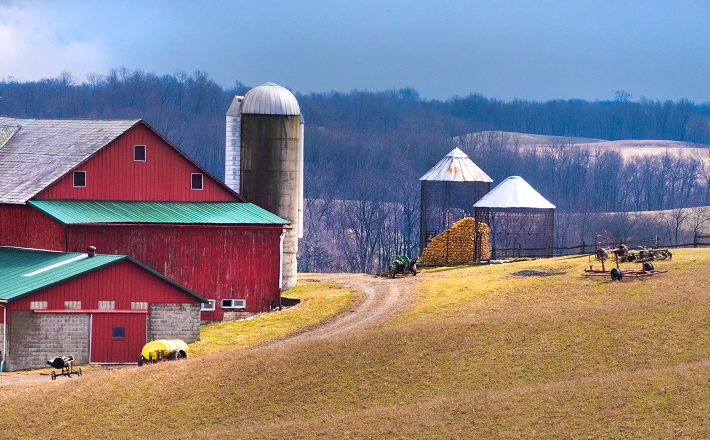Commentary on Ecclesiastes 1:2, 12-14, 2:18-23
I love “ordinary time” on the Christian calendar.
The holy days and festivals are riveting and awe-inspiring. But “ordinary time” is for the common us who just want to live our lives in a way that pleases God, is imbued with joy, and helps people. Ordinary time, the season after Pentecost, can be the best time(s) of the year.
My reason for loving this time in the Christian cycle is in this truncated portion of Ecclesiastes, the words of a royal connoisseur of life. In my mind, he accurately describes the happening of life; I am not convinced he persuasively describes the meaning-making possible in life. Here is a man who has seen it all, done it all, tried it all, according to this text. The lectionary skips the “who,” which the text identifies as Qoheleth, “the son of David, king in Jerusalem” (verse 1). Reading through the first chapter of Ecclesiastes, one could become depressed, if one takes only the word of Qoheleth. Because according to him, life is monotonous, tedious, and futile, at first glance. And, “what has been will always be” (verse 9). That’s a “no good news” report!
After we read a litany of the way life is dreary in verses 2-11, we come to the second portion of the lectionary text, Ecclesiastes 1:12-14, where the teacher says that applying wisdom leads to the conclusion that God has left humans with a hard task. And this assessment is at the core of Ordinary Time. The task of living is ours, and sometimes, life just is hard. Things happen over when we have no control — sickness, job losses, the end of significant relationships. Life can be hard and it could, if we succumb to that sentiment, take us out. The preacher who faces this text could merely agree with Qoheleth that chasing “vapors” or “wind” is futile, or the 21st-century preacher might come to an idea that chasing could be a whimsical exploration of life, a way to consider how we might enter the human project beyond the drudgery of get up, go to work, go home, then go to bed. We could turn “vanity” (futility? fancifulness?) on its end. What if paying attention to the details of one’s life make even the most tedious activities a prayerful reflection on being in community, on being fully human. We could dismiss “this life” in favor of one we might consider “above” or more spiritual. But what if, say, washing dishes in a thoughtful way leads to wonderment and not weariness. What if the commute to work could provide us insight on human life, or a list of things to pray about if nothing else.
I am suggesting a different kind of “getting wisdom.” And perhaps the Teacher is right that gaining wisdom brings vexation and more knowledge increases sorrow (verse 18). But from my vantage point this text begs a “reading against” its grain. I don’t mean that a preacher who decides to use the text merely says the Preacher is wrong; Qoheleth is not wrong. An unexamined life, lived in an unconscious or even selfish way does lead to the conclusion that it is all futile, a waste of time, a chasing after wind. But “time” and pursuing life is all humans have.
And Ordinary Time means we have to intentionally watch for the center of life in a different way from what happens during the holy days, where ways to encounter God is prescribed. Any preacher who decides to preach this text might consider what humans have with which to make life meaningful despite Qoheleth’s reflections.
It is true that we work hard, then die and someone else benefits from our labor (Ecclesiastes 2:18-23). But despair (verse 19) is not the only possible response to the fact that we will all die and leave whatever we have accumulated to someone else to enjoy. Our leaving includes what wisdom we have gained from our living. And, for me, the preacher who chooses this text — if they will present good news — must argue with Qoheleth about what that fact means. It could be “vanity,” i.e., foolishness, or it could be a part of joyful living should the benefactor believe that leaving a legacy from one’s sweat equity is a worthy thing. Death is inevitable and no amount of work will change that fact. So, working to both enjoy the fruits of one’s labor and make peace with dying. One may not be able to work one’s way to joy, but one should be able to figure out if the tedium of one’s current life is all there is, or whether there is a dream, a wind worth chasing.
In any event, the Preacher comes to the conclusion later in the book that laborers should “eat and drink and find enjoyment among friends” because death comes to all of us (see Ecclesiastes 2:24, where he says enjoying “toil” is “from the hand of God.” See also Ecclesiastes 3:13, 5:18, and 8:15. Is it possible, then, that all that gloom and doom from the king’s “wisdom” is a foil for the recurring theme in the book to enjoy life? Is it possible that he starts with what people with a lesser vision believes about life, then offers the solution: “enjoy life,” for life is the ordinary and constant gift of God.
What we do with the hard places and times, the dreariness and sameness, is ours to fashion a life. And maybe the 21st-century preacher can make good fodder from that. I think this counter narrative is important, especially for people who grew up with an ethic that does not include “joy” and enjoying life as a noble pursuit, a wind worth chasing.


August 4, 2019